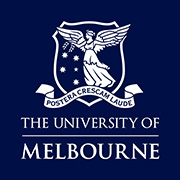Course Level
Master Degree (By Coursework)
CRICOS
115617M
Master of Disaster Risk and Resilience
Organizations worldwide value championing disaster resilience. They save lives and revenue while gaining a competitive advantage. By becoming more resilient, disaster risks can be mitigated and reduced. This program equips graduates from diverse backgrounds with resilience and sustainable development skills. You will learn to prevent disasters and handle extreme events. By applying these principles, you will emerge stronger and better prepared for the future. If your role involves identifying, mitigating, and managing business, safety, community, or environmental risks, this program is for you. It will put you at the forefront of your field, preparing you for challenging situations.
Campus | Duration | Fees | ATAR |
|---|---|---|---|
Callaghan | Full-time - 2 years | $61,620 | N/A |
Online | Online/Off-campus - 2 years Part-time - 6 years | $61,620 | N/A |
Structure
160 Units
Subjects
- Disaster Risk and Resilience Principles, Community-led Resilience and Leadership, Disaster Resilience Economics and Business Resilience, Disaster Governance and International Frameworks, Methods for Evidence-Based Decisions in Disasters, Disaster Risk and Resilience Capstone Project.
Entry requirements
- AQF 7 (Bachelors) or have an AQF 6 (Associate degree or Advanced Diploma) award with at least one year of relevant industry experience, will be required to complete 160 units of courses.
- AQF 8 (Graduate Certificate, Graduate Diploma or Honours degree) or have an AQF 7 award with at least one year of relevant industry experience, can complete the 120 unit pathway.
- AQF 9 (Masters) or higher award, or have an AQF 8 award with at least one year of relevant industry experience, or have an AQF 7 award with at least five years of relevant industry experience can complete the 80 unit pathway.
Recognition
This program includes courses that are certified by the Centre International de Formation des Autorites et Leaders (CIFAL) Newcastle, in accordance with the requirements of the United Nations Institute for Training and Research (UNITAR). This program also includes a course that is co-certified by the United Nations Institute for Training and Research (UNITAR) in accordance with the global Sendai Frameworks for Disaster Risk Reduction.
Study Pathways
A Graduate Certificate in Disaster Risk and Resilience is also available to study and can be used as a pathway into the masters program.
Related Courses

Master of Emergency and Disaster Management
CQUniversity Australia
.png)
Master of Emergency and Disaster Management
Charles Darwin University (CDU)

Graduate Certificate in Disaster and Terror Medicine
The University of Melbourne

Graduate Diploma in Disaster and Terror Medicine
The University of Melbourne

Graduate Certificate in Emergency and Disaster Management
CQUniversity Australia
